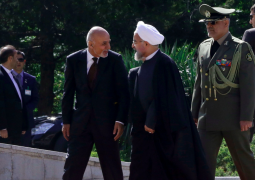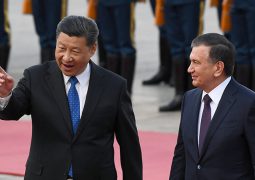Houthis, in Surprise Move, Form a Government in Yemen

SANA, Yemen — The Houthi movement and its allies formed a new government in Yemen on Monday, a surprise that angered their Saudi-backed rivals and complicated United Nations efforts to end a conflict that has ravaged the Arab world’s poorest country for much of the past two years.
The announcement of the new government, reported by the Houthi-run state television and Saba news agency, said it was formed from “all walks of the political spectrum who are anti-aggression.”
The reference was a swipe at the coalition led by Saudi Arabia that supports Yemen’s president, Abdu Rabbu Mansour Hadi, who was driven into Saudi exile in 2014 after the Houthis routed him from Sana, the capital. The Houthis control a large portion of Yemen including Sana.
The Saudi coalition has been bombarding Houthi positions in Yemen since March 2015 with thousands of airstrikes that have raised worldwide criticism over civilian deaths and destruction.
More than 10,000 people have been killed and more than three million displaced. The World Food Program, the anti-hunger agency of the United Nations, has warned that “millions of people are on the brink of famine” in Yemen.
Despite many announced cease-fires and attempts at negotiation, little progress has been made in resolving the conflict, widely seen as a proxy struggle between Iran and regional rival Saudi Arabia, which has accused the Iranians of backing the Houthis.
Saba said that the Supreme Political Council, a body formed in August by Houthi leaders and allied associates of a former president, Ali Abdullah Saleh, had decided a new government was needed “basically to arrange the domestic situation and face the aggression economically, militarily and politically.”
A spokesman for Mr. Hadi’s government, Rajeh Badi, was quoted by Reuters as saying that the announcement showed a “disregard not just for the Yemeni people but also for the international community.”
There was no immediate comment from the United Nations special envoy to Yemen, Ismail Ould Cheikh Ahmed, who had been working on a way for the conflict’s antagonists to form a unity government in conjunction with diplomatic efforts by Secretary of State John Kerry.
But a State Department spokesman, John Kirby, criticized the announcement, saying it was “clearly not conducive to achieving a lasting and comprehensive settlement to the conflict in Yemen, which will require political negotiation and consensus among all parties.”
While the Houthis initially appeared to have accepted the power-sharing idea, Mr. Hadi rejected it, insisting that he was Yemen’s legitimate president. Mr. Hadi also appeared incensed at Mr. Kerry’s efforts to help resolve the conflict.
Mr. Kerry visited the region a few weeks ago, met with Houthi representatives in Oman and announced a provisional truce and power-sharing plan. Mr. Hadi’s aides contended that Mr. Kerry had rushed to complete a deal before the Obama administration’s term ends and that American officials had not coordinated with their side.
Mr. Kirby has disputed those assertions and said of Mr. Kerry, “I think the secretary would make no apologies for having a sense of urgency here.”
- Previous Critic of Najib Razak, Malaysian Leader, Gets Prison for 1MDB Disclosure
- Next ‘Trump Effect’ Is Already Shaping Events Around the World









